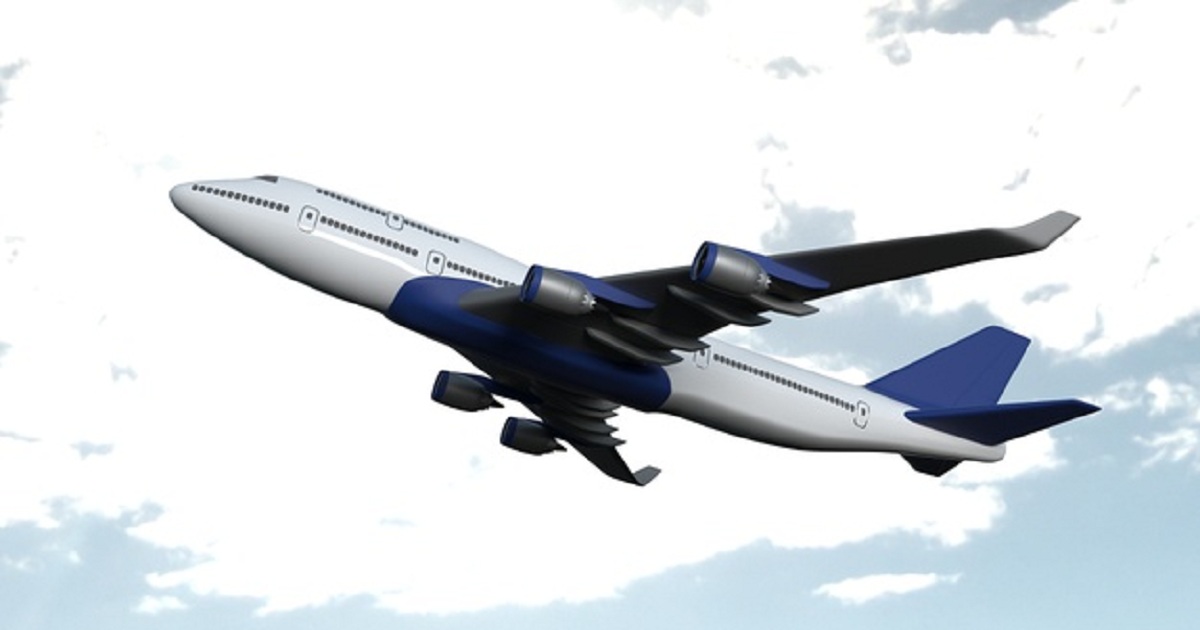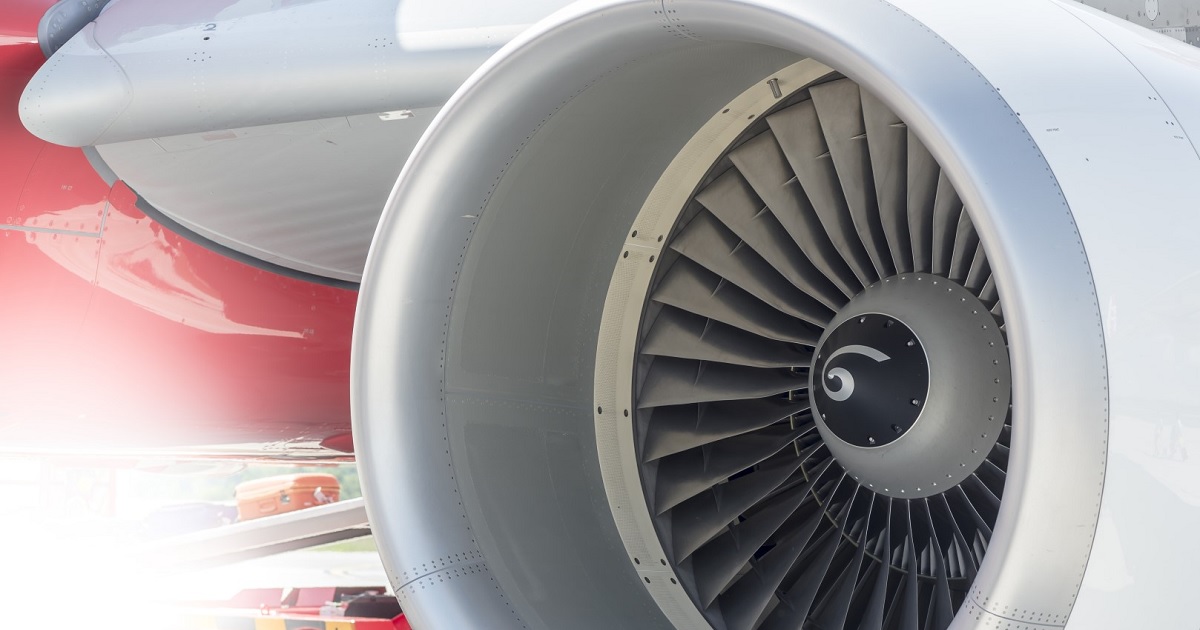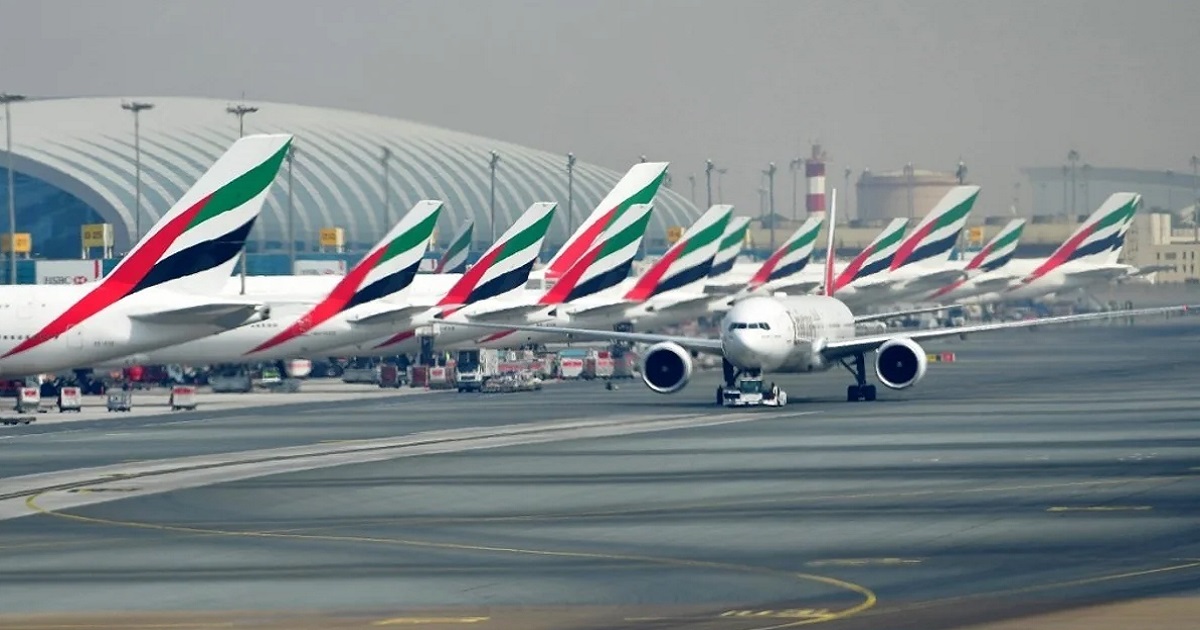
Business Aviation
Article | January 7, 2022
There’s been a lot of talk lately about airlines around the world beginning to favor smaller aircraft. Not just amid the pandemic but for the foreseeable future as well. The debate was given fuel when Lufthansa’s CEO made comments about potential down-gauging of its fleet ahead. But have we really entered the era of smaller airplanes for good?
Many have argued that even when demand for air travel does return there will be less of it overall because of a precipitous and permanent drop in business travel. And beyond that, even where demand does exist, it will be for convenient, point-to-point service, not on A380s via big hubs – as smaller planes emerge that are capable of flying farther and people shy away from big, crowded airports and the hassle of connecting. All of which calls for smaller planes. I’ve argued recently that this seems a little hasty. Nevertheless, the jury is out, and as they say – only time will tell.
Have smaller planes taken over flying?
One thing we can look at is whether the notion that smaller planes rule the day holds true at major airlines right now. And pulling some Flightradar24 data we can see that this has been happening – mostly. The headline takeaway seems to be that bigger planes do still have their place, but for obvious reasons smaller wide-bodies have proven more desirable on many global routes during the past year.
Lufthansa dropped its Very Large Aircraft quickly
If we look at Lufthansa’s data, the trend is very clear right from the beginning of the pandemic. The A380 and the 747s (both -400 and -8I) took a definitive hit beginning in March 2020. That was it for the A380 and the 747-400 for good, it seems. The small rebound in A380 flights recorded in recent months were storage-related. And since the pandemic started, it’s clear that the smaller A330 has been clearly favored, taking up nearly double the percentage of flying it had at Lufthansa pre-pandemic.
What’s most interesting here is that the 747-8I did come back, in some weeks to pre-pandemic levels. That’s quite a big plane. It is probably hard to fill these days. But it is Lufthansa’s flagship now – it has a First Class cabin and it can carry quite a bit of cargo. As a result it kept flying for a while on the bigger US routes like LAX. However recent dips in demand, and the winter season, saw the smaller and more fuel-efficient A350 come in to replace it on many routes. As I write this the Lufthansa 747-8I is in flight on just two routes – Mexico City (MEX) and Buenos Aires (EZE) to Frankfurt (FRA).
If I were to take a guess, I’d say we continue to see the 747-8I for some time on these bigger routes and in busier seasons. It may turn out to be one of the last options for passengers to fly a 747 a few years from now. Eventually, though, the more efficient 777X will replace it. Though Lufthansa has said it’s looking to shift to smaller airplanes overall, the 777X seems a natural fit for its big hub to hub routes. I don’t think we’ll see a day when the A350 is the largest plane in Lufthansa’s fleet – at least as long as Germany remains Europe’s largest economy.
Delta favors smaller, but only by a little bit
If we look at Delta, which also has a wide range of wide-bodies in its fleet, the picture is a little more complicated. In part that’s because initially its 777s and A350s (both of which fit about 300 seats) took over quite a lot of flying while its smaller 767s (200 to 240 seats or so) were more or less parked.
Since then, however, the 777 fleet has been retired and the 767s (both -300 and -400 series) have been doing nearly 60% of Delta’s wide-body flying. And its smallest Airbus wide-body, the A330-200, has flown much less throughout the pandemic. The A330-300, A330-900neo and A350-900 have filled in the rest of the flying, but while they were doing a majority of the wide-body flying in the first months, they’re not back to flying roughly the same percentage of Delta’s wide-body flights as before the pandemic.
It’s interesting to note that a number of 767s have been retired during this time, and A330-300s have been used to fill the gaps where necessary despite having a higher seat count. If no 767s had been retired it’s likely the total percentage of flights run with the 767 would be even higher.
What’s the bottom line?
It seems that airlines have tended to park their biggest planes, but perhaps not as drastically as some might have expected. That may have had a lot to do with cargo capacity. But cargo capacity will continue to be a consideration post-pandemic as well, so it’s not as if these planes will prove useless once things get back to normal. And if we see the boom in travel demand that some are predicting is on the way, many of these larger aircraft may see they get plenty of use yet.
Will there be less very large aircraft in airline fleets overall? Yes, probably. The A380 is all but done for except at a handful of airlines. And will smaller, long-range planes like the 787 prove popular in the years ahead? No doubt. But the bigger, fuel efficient planes like the 777X and A350-1000 will almost certainly still have their place in the sky too.
Read More

Design and Engineering
Article | January 7, 2022
Blockchain's abilities and features such as security, transparency, and centralizing systems can help aerospace companies reduce maintenance costs, minimize errors in aircraft parts and increase aircraft availability.
Blockchain technology has been valuable to one of the world's most complex and globally interconnected industries—the aviation industry. The technology can deliver ultimate benefits for thousands of suppliers, mainly involved in manufacturing an aircraft.
Aviation business leaders know that they need to adapt and innovate to survive. And blockchain in the aviation industry is one growing area of innovation that is yet to be explored. However, experts agree that aircraft maintenance and operations innovation will enable aviation companies to improve their efficiency. In this way, the technology will enhance performance and safety notions to the next level.
"We believe blockchain is significant in the aviation industry. Its probabilities promise to stimulate efficiency in the industry through maintenance process in general."
- Scott Thompson, the aerospace and defense leader at PwC.
Blockchain: A Technology of Trust
According to IATA's study in "Future of the Airline Industry 2035," blockchain study has been identified as one of the technologies that may significantly impact the future of aviation. It also states that demand for new commercial aircraft may reach nearly 40,000 planes over the next 20 years!
Looking at the demand scale, the companies that manufacture, provide services and operate aircraft mostly seek out AI, 3D printing, and blockchain technology. They would allow airline businesses to optimize performance.
"Blockchain is a lot about trust in the context of aviation, but the trust comes with huge costing."
- Scott Thompson
To him, blockchain for the aviation industry is like medicine. Through blockchain tools, the more data you have on every aircraft part, the better you can predict the parts' performance, longevity, abilities, and performance. Thus, the potential of predictive analytics will increase.
With blockchain, you have a snapshot of every part of the aircraft and know the parts' history. Moreover, the decentralized nature of blockchain made the maintenance process flawless, with all data being analyzed at the same time.
So, what areas can benefit from the blockchain and make a difference in aviation? First, let's highlight the part.
Blockchain Technology: Making a Difference
The Role of Blockchain in the Supply Chain
The supply chain in the aviation industry is looking promising for collaborations to happen in the supply chain. Blockchain will bring revolution in the long term to connect many loose ends in the supply chain ecosystem. The technology offers a prominent way to track data and provide consistent aircraft configuration data across the supply chain.
So, by knowing the absolute configuration of an aircraft part, blockchain solution empowers airlines and defense companies to share and authenticate data securely.
Blockchain in Aircraft Parts Tracing
Blockchain also plays a vital part in transforming maintenance logs and tracing aircraft parts. With the help of blockchain technology, you can ensure that parts being produced are authentic and meet the necessary airworthiness requirements.
For example, a blockchain application named Enspan, formerly known as Parts Pedigree, is pioneering. It could offer a more efficient approach to documenting an asset's lifecycle.
At the same time, with the help of blockchain applications, airlines would be able to sell and purchase parts with confidence. The only consideration is the documentation should be accurate and comply with all maintenance regulations.
Blockchain Applications in Loyalty Programs
Blockchain in the aviation industry can automate loyalty program transactions and security. It is relevant today as more and more airline companies are issuing credit cards, rental cars for accommodation, membership cards, and more like these.
By creating a standard digital currency like tokens using the blockchain, travelers can access instant value for flights on the spot. On the other hand, airline executives get a transparent understanding of how the revenue generates from reward programs.
For example, companies like Loyyal have already leveraged the benefits of blockchain to create digital wallets. These wallets will let customers store their reward tokens.
Deloitte mentions that blockchain for the aviation industry could be a game-changer in this field. This is because intelligent contacts can automate transactions through the blockchain, even in the supply chain.
Blockchain In Enhancing Security Measures
Blockchain technology, along with encryption, offers aviation an outstanding security blanket. As digitalization is speeding up, the need to have extra security layers for users is more critical than ever. So, for optimum security measures, blockchain employs cryptography that serves as a firewall against online threats and attacks. Any part of the information on the blockchain is stored cryptographically in secrecy.
Do you remember Malaysia Airlines Flight 370 that vanished in March 2014? The case was the biggest mystery in the aviation industry. There was no information on the flight's disappearance. Millions of dollars were spent trying to uncover the mysterious reason behind Malaysia Airlines Flight 370's disappearance.
The event is a clear example of why there is a need for a more robust storage mechanism. Blockchain usage in security measures is a priority to tackle such incidents in the future. In emergencies, information regarding flight routes, in-flight operations, location tracking, passenger data, and documents can be easily detected.
Flight-related data on a blockchain backup record adds an extra layer of protection in today's time amid centralized systems. However, it is all being done to ensure that all the processes remain transparent and effective.
Blockchain for Aircraft Maintenance
A commercial aircraft’s average lifetime remains up to 30 years. So, it's a laborious process to maintain documents associated with an aircraft.
On this, says,
"90% of entire maintenance records of an aircraft are paper-based documents. So there are millions of boxes."
- John Maggiore of Boeing
Understandably, such a system can have many drawbacks and lead to loss or fraud. For example, American Airlines in 2015 was proof of a fraud case in maintenance, which still can be an issue as senior aircraft have no chance of having a digital record.
So, when looking at the role of blockchain in helping airline companies go digital, there are higher expectations for the technology to serve in this field. In addition, the tools associated with blockchain technology can maintain an immutable record of aircraft, benefiting stakeholders in the aviation leasing community.
Furthermore, blockchain technology for the aviation industry can also speed up the release of an aircraft. It would be as simple as scanning a QR code on an engine to provide the entire history of the asset.
Hence, there is no stopping here! For example, companies such as Boeing are examining more and more blockchain applications. Similarly, Airbus has also demonstrated an interest in how blockchain technology could be used in supply chain tracking.
Therefore, by using blockchain to reinforce the Internet of Things, you can understand the potential of two crucial technologies working to work together to digitize and future proof airline processes.
Finally, Blockchain is Gaining Traction in Aviation!
The aviation industry operates under strict safety standards, regulations, and concerns. And the way it leads ultimately comes from the technologies it adopts (historical or present). For this reason, the bar of expectancy always remains high. On top of all, the pandemic has resulted in proving blockchain’s capabilities.
Among most airline companies, Airbus is intensely learning about the potential of blockchain. In addition, several other airline companies have expressed their interest in bolstering blockchain technology. As mentioned above, Lufthansa, British Airways, and Air New Zealand have already implemented the technology in their various airline projects. Whereas Air France in 2020 announced that it is looking forward to using the technology to enhance its maintenance activities.
The blockchain has already captured the needs of aviation businesses across the world. Still, the testing continues on the other side of the table. However, the providers of blockchain solutions are progressing rapidly.
Frequently Asked Questions
How is blockchain used in the aviation industry?
Blockchain in the aviation industry is gaining high value. It showcases its capabilities in tracking the status and location of flights, detecting parts, passengers' data in detail, monitoring operations in-flight, and more.
How can blockchain improve the aviation industry?
Blockchain in aviation can bring in much-required shifts and alterations. Shifts like improving ground operations, getting transparency in processes, transactions, costs, and revenue, and provide layers of securities to essential assets..
Do airlines use blockchain?
Airlines use blockchain technology to manage their take-offs and landing slots. The technology helps create cost-effective solutions to allow airlines to swap take-off slots and land more efficiently.e
{
"@context": "https://schema.org",
"@type": "FAQPage",
"mainEntity": [{
"@type": "Question",
"name": "How is blockchain used in the aviation industry?",
"acceptedAnswer": {
"@type": "Answer",
"text": "Blockchain in the aviation industry is gaining high value. It showcases its capabilities in tracking the status and location of flights, detecting parts, passengers' data in detail, monitoring operations in-flight, and more."
}
},{
"@type": "Question",
"name": "How can blockchain improve the aviation industry?",
"acceptedAnswer": {
"@type": "Answer",
"text": "Blockchain in aviation can bring in much-required shifts and alterations. Shifts like improving ground operations, getting transparency in processes, transactions, costs, and revenue, and provide layers of securities to essential assets.."
}
},{
"@type": "Question",
"name": "Do airlines use blockchain?",
"acceptedAnswer": {
"@type": "Answer",
"text": "Airlines use blockchain technology to manage their take-offs and landing slots. The technology helps create cost-effective solutions to allow airlines to swap take-off slots and land more efficiently."
}
}]
}
Read More

Air Transport
Article | July 6, 2022
With rescue flights crisscrossing the globe and passengers keen to get where they are going as soon as possible, will we see the end of hub to hub travel? Has this current aviation crisis signaled the decline of the current model of aviation we know today? One reporter at Simple Flying gives his opinion.
Read More

Airport Management
Article | December 22, 2021
Every month OAG updates its year-to-date Punctuality League table to provide an ongoing ranking of the world’s largest airlines and airports alongside its Monthly on-time performance (OTP) data. The list is based on the twenty largest airlines (by number of flights operated) known as Mega Airlines, and we provide a Top 10 ranking. With November Monthly OTPs now in, we have 11 months of data to take an early look at how these Mega Airlines have performed to date.
And whilst we have another month of data go, it is great to share some early insights before we release final numbers early next year.All the Top 10 airlines in our sneak preview currently come in with an OTP of over 85%. When compared to 2019, the last year of ‘normal’ flying, the Top 10 Mega airlines achieved OTP of between 75% and 86%, so this is a clear indication of just how much punctuality has improved over the past year.
Read More